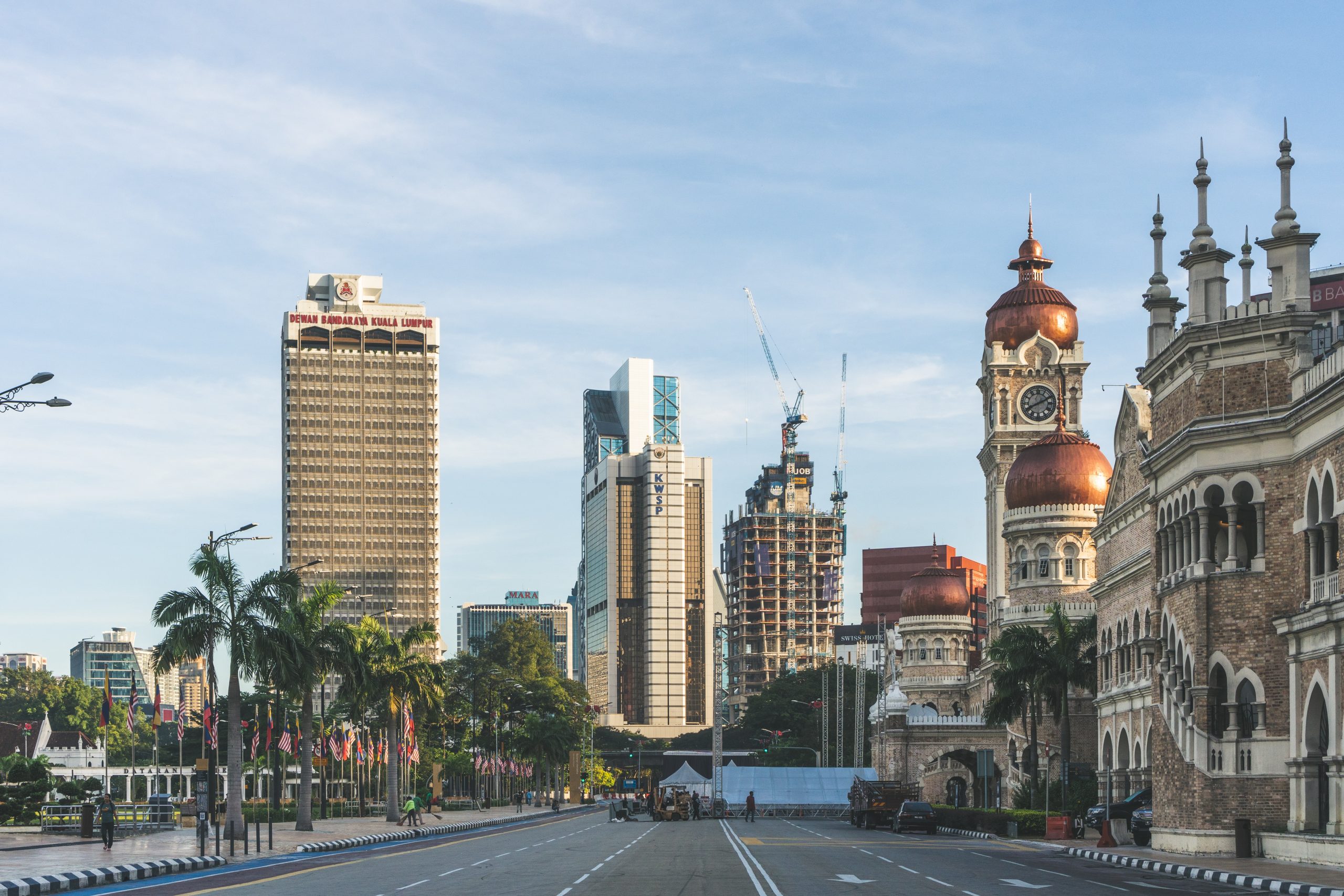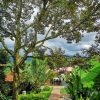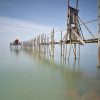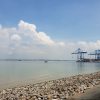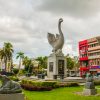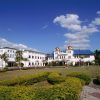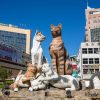Identical Towers, Identical Wonders – Petronas Twin Towers
Published on Nil | by petronastwintowers.com.my
Marvel at the double-decked skylines, shopping malls, and more. Come and capture with your own eyes the magnificence of Malaysia’s PETRONAS Twin Towers, the world’s tallest twin structures.
WELCOME TO PETRONAS TWIN TOWERS

“As an internationally recognised landmark, the PETRONAS Twin Towers symbolise the courage, ingenuity, initiative, and determination, energy, confidence, optimism, advancement and zest of a nation.” Tun Dr. Mahathir Mohamad 4th & 7th Prime Minister of Malaysia
PETRONAS Twin Towers are the tallest twin towers in the world, and its status has remained unchallenged since 1996. We welcome you to Malaysia’s proudest icon and architectural wonder, lined with an endless shopping and touring experience.
ABOUT PETRONAS TWIN TOWERS
Soaring to a height of 451.9 metres, the 88-storey twin structure is Kuala Lumpur’s crown jewel. Majestic by day and dazzling at night, the PETRONAS Twin Towers is inspired by Tun Mahathir Mohamad’s vision for Malaysia to be a global player. Together with master architect Cesar Pelli, the international icon powerfully captures the nation’s ambitions and aspirations.
Visit us and experience the PETRONAS Twin Towers first-hand. Begin your tour with interactive displays that showcase the journey, from idea to completion. Scale 170 metres in an elevator with a futuristic edge. The doors will open at the Skybridge, a connecting structure between the towers and the world’s highest 2-storey bridge. Ascend even higher to level 86, where the story of Malaysia’s vision unfolds amid breathtaking views of Kuala Lumpur. Then wrap up your visit with exquisite souvenirs at the gift shop.
MILESTONE
The entire project took 7 years from start to finish. Though it has been decades, we still remember every milestone and achievement like it just happened yesterday.
January (1992)
Start of project planning
March (1993)
Start of foundation works
April (1994)
Construction of the superstructure
January (1996)
Fitting out of the interiors complete with furniture
March (1996)
Jacking of the spires of Tower 1 and Tower 2
January (1997)
Moving in of the first batch of PETRONAS’ personnel
August (1999)
Official opening by YAB Dato Seri Dr Mahathir Mohamad
DESIGN & STRUCTURE
WORLD’S TALLEST TWIN BUILDING
The twin towers were originally proposed to be built at a height of only 1400 feet (427m). Thankfully, Dr Mahathir saw greater potential in the building as the world’s tallest structures, and pressed architects and engineers to include a few more meters in height, in every way possible.
To meet his ambitions, many structural facts were recalculated and retested in wind tunnels. This has resulted in the addition of a dome with an integrated pinnacle atop of the towers – successfully reaching 1483 feet (452m) tall, surpassing the Sears Tower in the USA.
Islamic Patterns ; Rub El Hizb
The towers were designed by a renowned Argentine architect – César Pelli. The first design fell just a bit short of The 4th & 7th Prime Minister Mahathir’s satisfaction, as he felt that there was more room to insert something uniquely Malaysian in the design.
He wanted a building that would be identifiably Malaysian, was of world class standard, and which Malaysians will inevitably be proud of. Through a series of edits, eventually, the The 4th & 7th Prime Minister understood what he wanted the towers to resemble; an eight-pointed star (when seen from the top), which represents unity, harmony, stability, and rationality in the Islamic cultures.
One concern Pelli had for the new design is the limited floor space. To overcome this concern, he added semicircles to each of the inner angles. Each tower now has a total of 43,600 square yards (36,455 m2) of floor space, including an additional circular annex referred to as ‘bustle’, standing 44 stories high.
STRUCTURE
Both towers are ‘intelligent’ structures, built with a system that seamlessly and simultaneously coordinates telecommunications, environment control, power supply, lighting, fire and smoke control, and building security.
88-Storeys
Each tower is 88 storeys high with 5 underground levels for car park and mechanical services.
452 Meters
Each tower measures 452m in height – from ground to tip which – and is the equivalent of 1,483 ft.
600k Tonnes
Each tower weighs 300,000 tonnes which is equivalent to about 42,857 adult elephants.
395,000 sqm
The towers have 395,000m² build-up area, with 213,750m² free space for use and 186,000m² annexes.
CONSTRUCTION
The construction of PETRONAS Twin Towers took 6 years and costed the country a fortune of over RM 6 billion (USD $1.6 billion) to complete. Built with 899,000 ft² of stainless-steel extrusions, the building was surprisingly void of heat and UV rays, thanks to the addition of 590,000 ft² of lamination glass over the surface of the skyscraper which would require 2 whole months just to clean each and every single glass panel!
6 Years
Took 6 years of constrution from foundation until opening
USD $1.6 billion
Costed USD $1.6 billion to erect both towers
WORLD’S LARGEST FOUNDATION
Skyscrapers need strong, deep foundations that penetrate into the ground below. Given the tremendous height of the towers, the PETRONAS Twin Towers have a ground-breaking 120 meters (approx. 400 ft.) of solid foundation underneath its dense concrete footings.
12 Months
Foundations were completed within 12 months by Bachy Soletanche
120 Meters
120 m (400 ft) deep under the ground
Elevators
PETRONAS Twin Towers include 29 double-decker high-speed passenger lifts, six heavy-duty service lifts and four executive lifts. Each passenger deck can carry up to 52 people total, while the executive lifts can carry about ten. The speeds of these elevators vary is between 3.5m/s and 6.0 m/s, depending on the zones they are servicing.
Exterior
Each Tower is set back five times in its ascent to maintain the vertical axis and tapering of the design. The walls of the uppermost floors are also sloped inward to taper and meet the pinnacle. Vision Glass, specialised panels with light filtering and noise reduction properties, provide a comfortable inner environment. The glass is covered by stainless steel visors to further protect visitors from the tropical sun.
Interior
The designs and patterns that line the entrance halls’ foyer reflect Malaysia’s traditional handicrafts and ‘songket’, or weaving. The wall panels and screens are also inspired by hardwood carvings from the East Coast of Peninsular Malaysia. The floor designs are based on intricate motifs of ‘pandan’ weavings and ‘bertam’ palm wall mattings.
Pinnacles
These structures house aircraft warning lights and external maintenance building equipment. Each pinnacle features a spire with 23 segments, and a ring ball comprised of 14 rings of varying diameters.
OBSERVATION DECK
The observation decks in Petronas Twin Towers are located at Level 86 of both towers. The deck allows visitors to enjoy the a spectacular view of the cityscape from above 370 meters. Visitors will also get to discover the history of the twin towers in detail through digital displays and exhibition.
86th Floor
Located on 86th floor, the second highest level of the twin towers.
370 Meters
Superior bird’s-eye view from 370 meters above the ground.
SKY BRIDGE
Weighing 750 tons, the double-decker skybridge acts as the connector between the two towers on the Level 41 and 42. Interestingly, the skybridge is not fully attached to the main building – engineers deliberately designed the skybridge this way to give allowance for small movements during high winds and other unpleasant weathers. This prevents the bridge from breaking away from the towers. The bridge measures 170m (558 ft) above the ground and 58.4m (192 ft) long.
58.4 Meters
58.4 m (192 ft) long
170 Meters
170 m (558 ft) high above the ground
LOCATED IN THE HEART OF KUALA LUMPUR
https://www.google.com/maps?ll=3.158043,101.711339&z=14&t=m&hl=en&gl=US&mapclient=embed&cid=11401704482821279830
The Twin Towers are impossible to miss. As long as you are in Kuala Lumpur, you will find the marvellous building standing tall in the middle of the busiest and brightest city in Malaysia.
DRIVE TO PETRONAS TWIN TOWERS
On the road, you can reach PETRONAS Twin Towers via Jalan Ampang, Jalan P. Ramlee and Jalan Kia Peng. Note that tunnels at Jalan P. Ramlee, Jalan Tun Razak and the Ampang – Kuala Lumpur Elevated Highway (AKLEH) are also directly connected to the parking bays at KLCC. Alternatively, you can search for “PETRONAS Twin Towers” on Google Maps or WAZE to navigate.
Lower Ground (Concourse) Level,
PETRONAS Twin Towers,
Kuala Lumpur City Centre,
50088 Kuala Lumpur, Malaysia
TRAIN/LRT/MRT
The integrated train system makes the most convenient way to travel around the city centre in the Greater Kuala Lumpur.
-
KTM (Seremban Line & Port Klang Line)
Ride to KL Sentral then Switch to LRT Kelana Jaya Line and stop at KLCC Station.
-
LRT (Ampang Line & Sri Petaling Line)
Ride to Masjid Jamek then switch to LRT Kelana Jaya Line and stop at KLCC Station.
-
MRT Sungai Buloh – Kajang Line
For a ride with MRT, you will first need to stop by at Pasar Seni station, and then switch for LRT Kelana Jaya Line. From there, you can proceed heading towards KLCC station.
-
KL Monorail Line
For a ride using monorail, stop by at KL Sentral or Bukit Nanas and look out for LRT Kelana Jaya Line. Head towards KLCC station from there.
PUBLIC BUS
If you are taking the bus, you may choose between riding a direct bus to Suria KLCC or riding a bus to the nearest train station to KLCC.
-
RapidKL City Buses
B103: Titiwangsa Bus Station at Jalan Tun Razak → KLCC (stops at KLCC LRT Station)
B114: Maluri Bus Station at Jalan Cheras → Titiwangsa Bus Station at Jalan Tun Razak via KLCC (Stops in front of Suria KLCC) -
GOKL City Bus (Free Bus Service)
Green Line : Bukit Bintang → KLCC
Purple Line: Arab Street Taxi (interchange) → KLCC
TAXI/GRAB
Taxis are a popular way of travelling in Malaysia. Always request the driver to switch on the fare meter before you begin your journey. The taxi driver can easily drop you off at Suria KLCC’s main entrance or directly to PETRONAS Twin Towers entrance.
Alternatively you can book an e-hailing ride with the Grab app. For your destination, choose ‘PETRONAS Twin Towers’.
BICYCLE LANE
There are bicycle lanes (in blue) that allows cyclists to reach Suria KLCC from Lebuh Pasar Besar → Jalan P. Ramlee / Jalan Ampang. The bicycle lane will always be located on the left side of the road – along streets and walkways.
Only foldable bicycles are allowed inside public buses and trains. Kindly note that bicycles are also prohibited to be carried onto the buses and trains during peak hours. The typical peak hours in Kuala Lumpur are between 07:30 – 09:30 and the 17:00 – 19:30.
Maps
